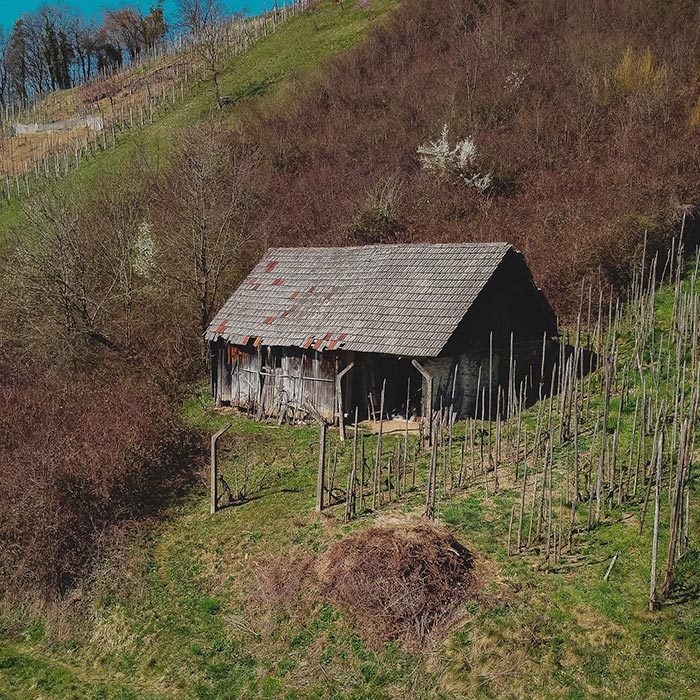 ©hsgeisenheim
©hsgeisenheimAccording to the ProWein Business Report, the mood in the wine industry, especially in Germany, seems much worse than the economic situation.
Is that so?
Loose: After the Corona shock, a catch-up process began in 2022. It was more noticeable in Southern Europe than in Germany, because more exports were lost there during the Corona months. At the time of the survey in November 2022, the outlook in Germany was gloomy, people didn't even know whether there would be enough gas to get through the winter, and high energy price increases were imminent. But a certain attitude to life also plays a role: people in the Mediterranean region are generally more optimistic than here.
So is the worst behind the industry?
Loose: No. It is very difficult for wineries to pass on the increased costs, for example for glass and other raw materials, to the customers. So the big producers and bottlers are under massive pressure from the trade. Margins are going down. It is not much better for smaller wineries. However, their clientele is usually less affected by the crisis, which is why their sales do not slump as much. But they can only pass on a tiny part of their higher costs. In addition: the current development of the wine industry is based on a rather uneconomic basis. Its situation was already unstable before and is characterised by decades of structural change. We see it in the companies of the Geisenheim Business Analysis and in the final theses of the students we supervise. Many of them come to this in the course of their education: "Oh, my parents earn practically nothing from viticulture!" Nevertheless, many continue: "I don't give up and try. The land is ours, I have to maintain the family's heritage. I feel obliged to do so."
"The wine industry is not profitable in production"
Does the current tense situation with the Ukraine war, inflation and huge cost increases expose what has been kept quiet about for too long?
Loose: Yes, these shocks are dramatically exacerbating the difficult situation once again. The wine industry is like an iceberg - we are talking mainly about the visible part of the top and the successful wineries. Among them, there are many businesses that would not survive at all without a side business or other sources of income. Wine production is cross-financed. Many of the wine-producing farms are currently not profitable, they do not generate enough income for the family and no return on the capital invested. Yet economic sustainability is the most important thing for the survival of a company, because only then can it also operate in an ecologically and socially sustainable manner. The big problem for German businesses is that, depending on the year, there are about ten million hectolitres of wine too much in the world, which depresses global prices. One could put it casually: The entire German harvest is surplus.
Will the situation continue to worsen or will revenues normalise to such an extent that small wineries can survive?
Loose: The market adjustment does not only exist in the wine industry. But the adjustment process is only possible slowly here. This has to do with the extremely long periods of time in which winegrowers trade. They have to think decades ahead. A vineyard stands for 30 to 40 years and can only be changed with great effort. The situation is aggravated because not all winegrowers think economically. Many do not want to calculate what they really earn. In addition, we had the fatal situation in the past 15 years that the financing costs were zero. Personnel costs have only risen moderately during this time. Now we are facing a perfect storm: rising interest rates and rising personnel costs due to the increasing labour shortage. Already, every second business in the wine industry cannot fill all its vacancies, and seasonal workers in particular are lacking everywhere. This will continue to lead to massive pressure towards mechanisation of the vineyards. But you have to be able to earn these investments. Especially in the steep slopes, many winegrowers aged 50 to 60 say to themselves: "I'll work until I retire, then I'll stop. New investments are no longer worthwhile for me."
 Steep slopes and small vineyards can hardly be cultivated to cover their costs
Steep slopes and small vineyards can hardly be cultivated to cover their costsWill only half of the vineyards in Germany still exist in ten years?
Loose: I think that in ten years we won't be able to preserve all the vineyards we still have today. Hand-worked steep slopes and very small terraces are the first ones that can usually no longer be farmed cost-effectively today - with the exception of a few icons. The second is the size of the winery: small wineries are usually uneconomical. Expanding wineries, however, often have difficulties in moving from a family structure to an organisational form that requires a middle management level. Not every winegrower is willing or able to do this. Some wineries get into trouble because they are too big for a person-managed winery but have not been able to adapt their organisational structure. Size does not save everything. Many small wineries have to get to a medium size and at the same time adopt economically sensible structures. An even stronger division of labour in the German sector into efficient grape producers and excellent marketers, as we already know from many other countries, would also help. There is the traditional agrarian mindset - someone has to buy my products - and a market-oriented mindset - I have to adapt my production methods to changes in buyers. I believe that most of those who lack the economic mindset will face even bigger problems.
"Size doesn't save everything"
And now climate change is added to the mix.
Loose: As a result, our yields per hectare are decreasing and we need in the future more and more irrigation systems. Who will pay for their purchase and operation? Who builds the necessary infrastructure? All this makes wine more expensive. But many consumers are usually not willing to pay because of cheaper alternatives. In addition, we will soon have to cut down on 50 percent of pesticides. That means we need many more good-tasting piwi varieties. Currently, 2.5 percent of the vineyards in Germany are replanted every year. If we were to plant all of them with Piwi varieties today, the conversion would take 40 years. We notice that the wine industry is beginning to rethink. Nevertheless, only a fraction is currently planted with piwis. This is partly due to the fact that some Piwi grape varieties are not sufficiently available from the nurseries for years. This shows how important it is to look into the future early and plan for the long term. Courageous winegrowers take the risk and commit to a new grape variety for 30 to 40 years, even though consumer acceptance is not certain.
Does the wine industry have to change fundamentally in the next 15 years?
Loose: The change is already there, it is just becoming more visible now. The global wine supply is greater than the demand, and the prices of the wines can only rarely keep up with the cost increases. From a business point of view, tough decisions are often necessary on how to manage this and stop the depletion of equity. But there are winegrowers who do not think holistically in economic terms and only orientate themselves on the account balance - that is, whether there is still something left. In doing so, they often do not realise that they are living off the substance, i.e. the depreciation of past investments. But often no one takes over an outdated business with high investment needs. Such changes are damn hard. You have invested your whole life in the business that you took over from your parents and to which you feel committed. You don't just give up on something like that. Often the hard break happens only when none of the children wants to take over.
On the one hand, many winegrowers don't even earn the minimum wage and give up. On the other hand, luxury wine brands are constantly achieving new record prices. Is wine becoming an exclusive hobby?
Loose: According to surveys, 30 percent of households in Germany have no money left at the end of the month. If they have to pay double for energy, they have to save the amount somewhere else. In the lower segment, however, it is not possible to produce even cheaper in Germany; the actual costs are already not covered there. These producers are in danger of disappearing. Wealthy households, however, will continue to buy good wine. So you can still get by quite well in the premium segment. But premium is already occupied today. Making a premium name for oneself there as an up-and-comer is difficult, though not impossible. But it is an illusion to believe that there is enough room for all German producers in the premium segment.
What is your summary?
Loose: With a harvest of only 50 hectolitres per hectare, a winery can only survive in the long run if it already has a very strong brand. You need several skills to run a successful business, and they are rarely combined in one person. This requires a sensible division of labour. But the family also has to function: Divorces, illnesses, deaths or inheritance disputes set a winery back. That doesn't sound romantic, but it is the reality.